Trump Still Hasn’t Addressed Pittsburgh Shooting Suspect’s Anti-Refugee Views
President Donald Trump has failed to acknowledge the anti-refugee sentiment that underpinned the deadliest known attack on American Jews in U.S. history, the leader of a Jewish refugee resettlement agency has said.
Before the massacre of 11 worshippers at Pittsburgh’s Tree of Life synagogue last year, the alleged gunman Robert Bowers is believed to have ranted on social media about HIAS, one of nine volunteer agencies that contracts with the U.S. government to help resettle refugees.
“HIAS likes to bring invaders in that kill our people,” Bowers reportedly wrote on the social media platform Gab hours before the attack.
One year later, HIAS President Mark Hetfield says Trump hasn’t done enough to address the underlying anti-immigrant, white nationalist sentiment that Hetfield believes fueled the mass shooting. Hetfield claims neither Trump nor a high-ranking official at the State Department has reached out to his organization in response to how HIAS was targeted by the shooter.
“The Pittsburgh Tree of Life attacker made an explicit connection between our resettlement work and his motivation to kill Jews at prayer,” Hetfield said. “The president has had multiple opportunities to acknowledge that connection publicly and to reach out personally to HIAS ― and he has not.”
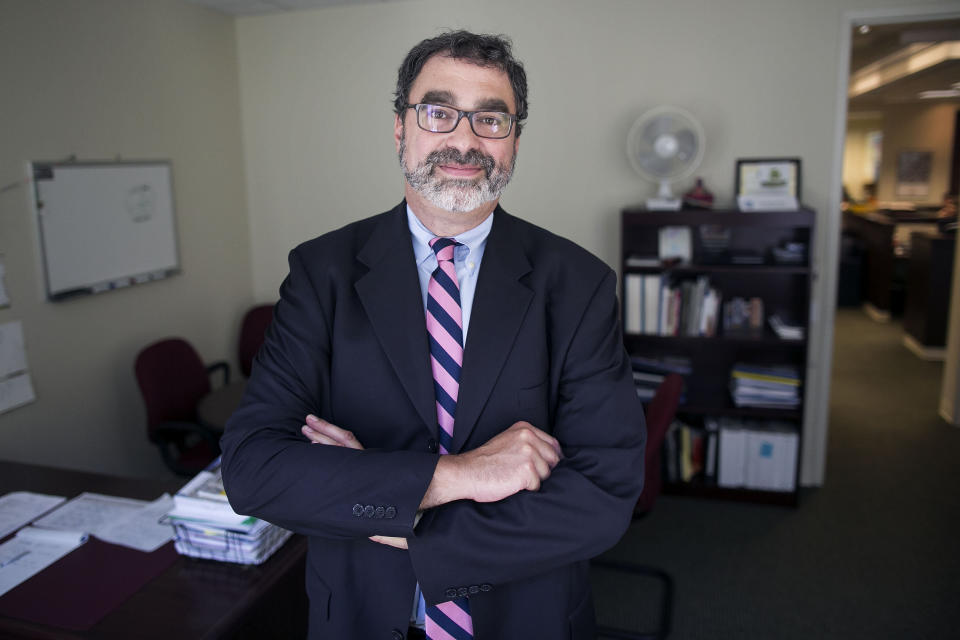
As Jews around the country prepare to observe the first anniversary of the tragedy this Sunday, Hetfield said he hopes Trump “is able to acknowledge this weekend what he has not been willing to in the past.”
A State Department spokesperson told HuffPost that several staff members and leadership from the Bureau of Population, Refugees, and Migration contacted HIAS directly. The spokesperson also referred to a presidential proclamation issued on the day of the shooting that ordered flags on public grounds to be flown at half-mast. The proclamation did not mention HIAS.
“We view the President’s proclamation regarding the horrific act as speaking on behalf of the entire federal government,” the spokesperson said.
The White House has not responded to HuffPost’s request for a statement.
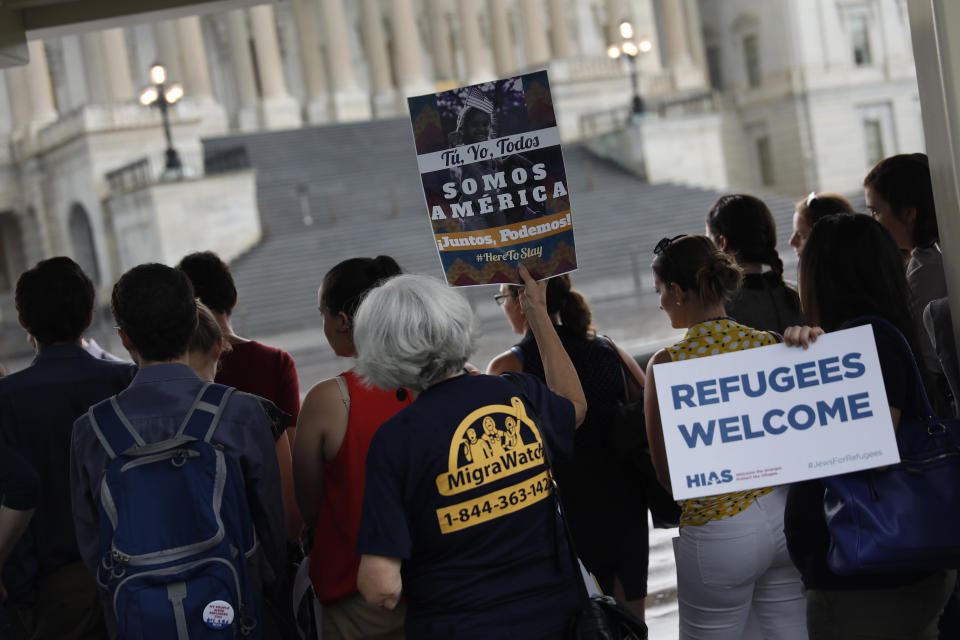
In the days after the attack, then-White House press secretary Sarah Huckabee Sanders roundly rejected suggestions that Trump’s rhetoric was responsible for the massacre. The president has acknowledged that “evil” anti-Semitism was behind the shooting and insisted Bowers was “no supporter of mine.” (Bowers reportedly expressed anger toward Trump in an online post).
But Hetfield argued that condemning anti-Semitism is not enough. He said he had hoped that the Pittsburgh shooting would compel Trump to stop using language that portrays refugees and asylum-seekers as “invaders” ― language Bowers himself used online to refer to immigrants. But Trump has continued to use this rhetoric during rallies and speeches.
Since Oct. 27 last year, the president has used the word “invasion” at least six times on his personal Twitter feed, every time to refer to asylum-seekers at the U.S.-Mexico border.
....and renovated, with MUCH MORE to follow shortly. Tens of thousands of illegals are being apprehended (captured) at the Border and NOT allowed into our Country. With another President, millions would be pouring in. I am stopping an invasion as the Wall gets built. #MAGA
— Donald J. Trump (@realDonaldTrump) March 9, 2019
“The administration may speak out against anti-Semitism, but while anti-Semitism is a unique form of hatred, it’s connected to most other forms of hate,” Hetfield said. “It’s connected to xenophobia, Islamophobia, and it’s connected to homophobia, all kinds of hatred directed towards ethnic and minority groups.”
Hetfield believes the suspect’s anti-immigrant sentiment can be linked to what’s been called “replacement theory.” The conspiracy theory, popular among white nationalists, posits that white Americans are being replaced by brown and black people. Often, white nationalists have a concurrent belief that somehow, Jews are helping to orchestrate that ethnic replacement.
That’s why HIAS, with its history of advocating for refugees and asylum-seekers, has long been targeted by the far-right, Hetfield says.
“We do this because of our Jewish values and our Jewish history, and the commandment to welcome the stranger and greet the stranger as ourselves in the Torah,” Hetfield said about the organization’s work. “But that philosophy of HIAS plays right into this replacement theory of white nationalists.”
Love HuffPost? Become a founding member of HuffPost Plus today.
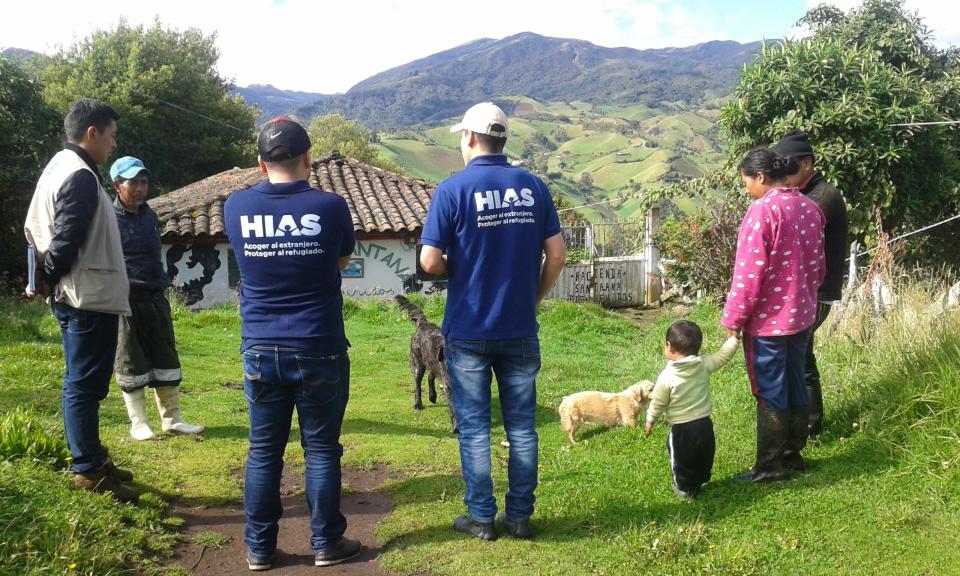
HIAS, formerly known as the Hebrew Immigrant Aid Society, was founded in 1881 by Jewish residents of New York City who wanted to help fellow Jews fleeing pograms and anti-Semitic riots in Eastern Europe and Russia. Over the years, the organization has expanded its mission to include helping non-Jewish refugees navigate life in America.
The organization has become increasingly vocal about Trump’s efforts to drastically reduce the number of refugees allowed entry to the U.S.
Trump has repeatedly dropped the refugee admissions cap. Most recently, he called for it to be reduced to 18,000 ― the lowest ceiling established by a president since Congress created the refugee resettlement program in 1980.
The administration’s cuts have had an impact on HIAS’s work. In the fiscal year ending Sept. 30, 2019, HIAS resettled 1,869 refugees. In fiscal year 2016, the organization resettled 3,884 refugees.
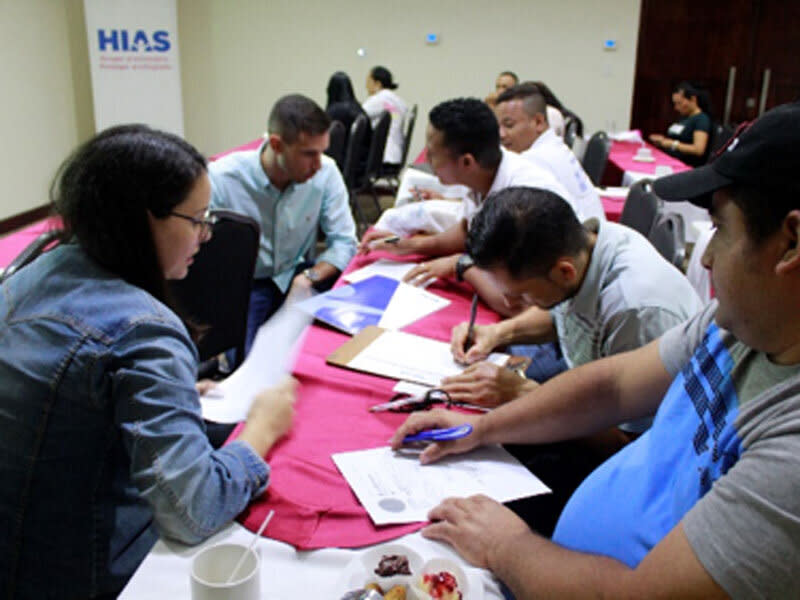
Last October, HIAS called on Jewish congregations around the country to join its refugee Welcome Campaign and participate in a National Refugee Shabbat Event. Over 300 Jewish congregations across the country participated and pledged to stand up for refugees ― including Dor Hadash, one of the three congregations that worshipped at Tree of Life.
In one of Bowers’ anti-Semitic online posts, the suspect linked to information about the Shabbat event.
“You like to bring in hostile invaders to dwell among us? We appreciate the list of friends you have provided,” the suspect reportedly wrote.
Over the past year, HIAS has had to institute “serious security measures” at its U.S. offices that weren’t in place before, Hetfield said. The organization has also hired grief counselors to help staffers navigate feelings of guilt and sadness about the attack.
HIAS has also grappled behind the scenes over whether to remove its online list of congregations that have joined the Welcome Campaign. It ultimately decided against that, Hetfield said, concluding that the point of asking congregations to join the campaign was to have them proclaim support for refugees openly.
He said HIAS hasn’t gotten requests from congregations to be removed from the public list, although he said the list hasn’t grown very much since last year.
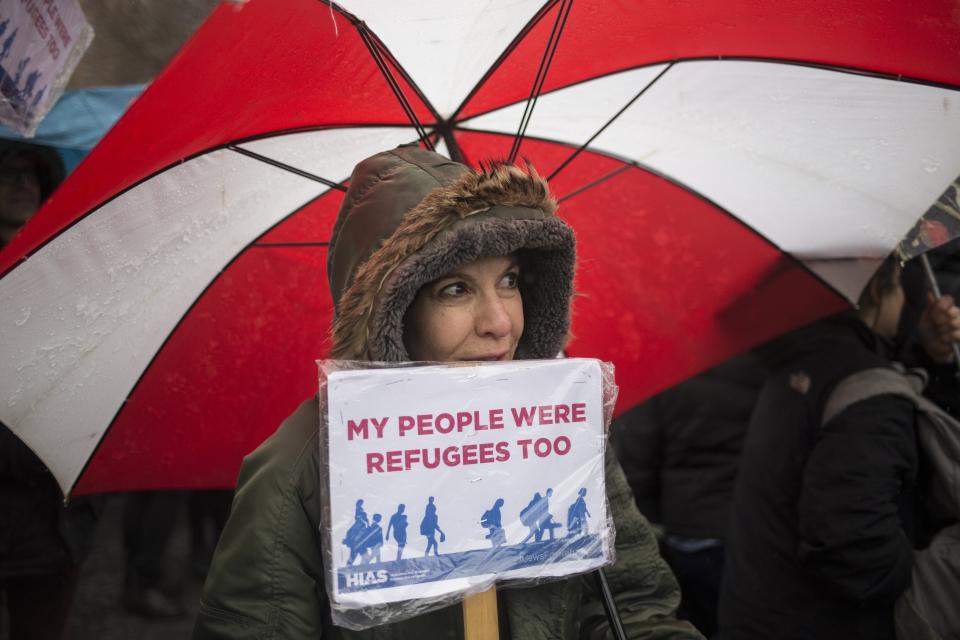
On the other hand, the financial support HIAS has been getting ― both from American Jews and from non-Jews ― has multiplied, he said. In the months after the shooting, HIAS received donations from thousands of supporters in the U.S. and around the world.
The synagogue shooting has emphasized the importance of HIAS’s mission at this moment in history, Hetfield said. The leader, who has worked for HIAS on and off for about 30 years, said the biggest problem he used to face was people’s apathy about refugees. But now, he feels like HIAS has “an entire community behind us.”
“People are really committed to doing something to welcome refugees, American Jews in particular,” he said. “All of us are descended from people who fled persecution, who fled anti-Semitism. Now we’re in a position to help others, and others need our help more than ever before.”
Also on HuffPost











This article originally appeared on HuffPost.

